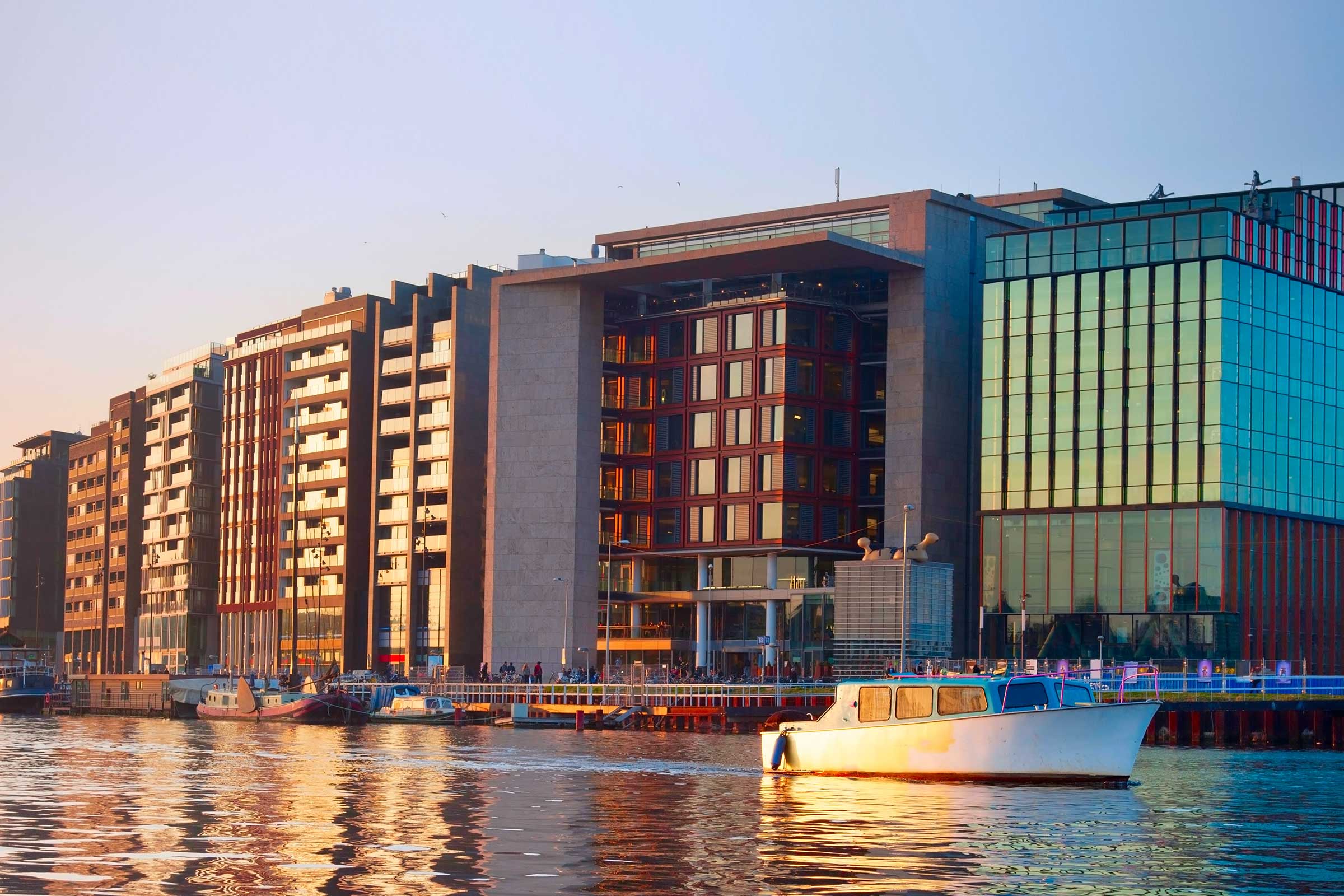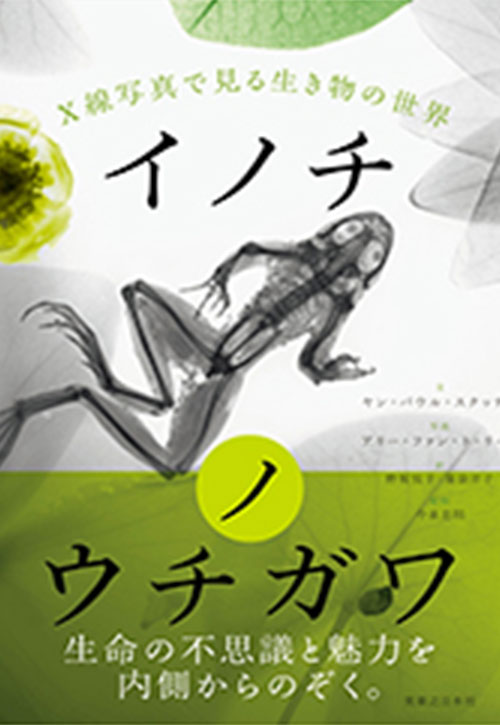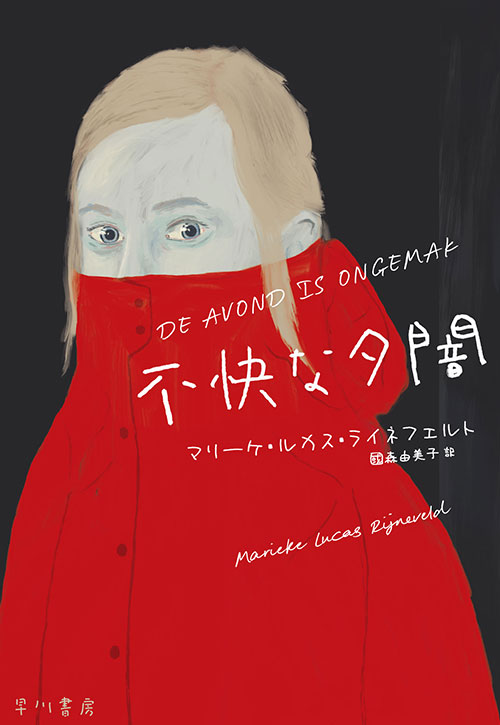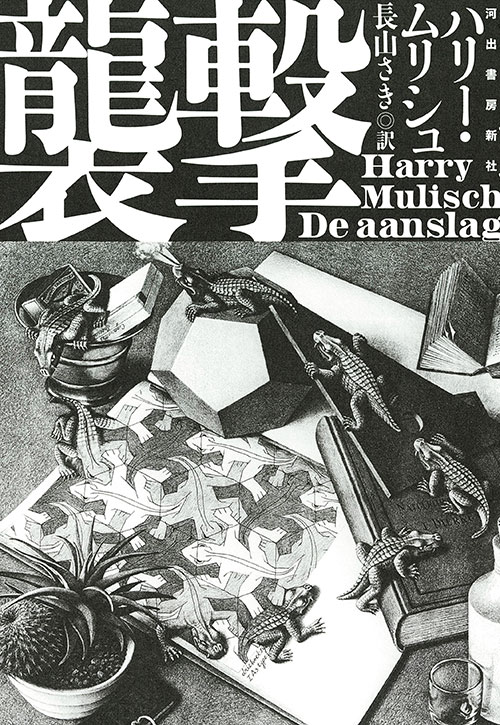
View with the Central Library Amsterdam, Amsterdam, Netherlands, exterior
Fumiko Miura is a Japanese author and Japanese language teacher based in Rotterdam, the Netherlands. She published her first book “Polderjapanner” in Dutch language in early 2023. In the interview, she talks about her motivation to write the book and the perception of Japanese culture in the Netherlands.
The Kinderboekenweek is held in October every year to promote children´s books in the Dutch language. It kicks off with a children’s dance party during which the prize for the best Dutch children’s book is awarded. Dutch schools pay close attention to the Kinderboekenweek, and libraries and bookshops also host special activities.
Read My World is a leading platform for written and spoken words from all over the world. They create spaces of encounter for writers and storytellers, readers and listeners, publishers, and translators. The organization works with international curators and editors to create the International Literature Festival in the Tolhuistuin in Amsterdam in September. Each year the program focuses on a different region of the world where major social changes are taking place.
The annual Winternachten International Literature Festival in The Hague takes place at different locations around the city. More than a hundred writers, poets, performers, thinkers and young talents from around the world visit the city during four days in January. Visitors can choose their own route through a varied program including talks, interviews, readings, music and film events featuring writers, poets, spoken word artists, and musicians from the Netherlands and abroad.
Crossing Border is one of the oldest and most innovative music and literature festivals in Europe, and the leading international festival of its kind in The Netherlands. Since 1992, we have been welcoming the biggest names in music and literature, as well as showcasing new and exciting talent from The Netherlands and beyond. Every November, the historic city center of The Hague is taken over by more than 80 contemporary writers, poets, musicians, spoken-word performers and other storytellers in 12+ venues, fusing genres and art forms for an unforgettable festival experience.
The Antwerp edition takes place in the same week as the festival in The Hague and is organized in collaboration with De Studio, Arenberg, Trix and Antwerpen Boekenstad.
ILFU is an annual festival and a daily online platform for literature. The International Literature Festival brings the best writers to Utrecht and publishes commissioned work on the festival’s platform. ILFU’s mission is to show that literature matters. In a two-week program in autumn, ILFU seeks out all expressions of literature and collaborates with all kinds of partners.
The Constantijn Huygens Prize is an annual Award, inaugurated in 1948. It is the most important literary prize awarded by the Jan Campert-Stichting (Jan Campert Foundation) on behalf of the municipality of The Hague. The Literatuurmuseum (Museum of Literature) hosts the award ceremony, which usually takes place in January.
Awarded once every three years, the Committee of Ministers of the Dutch Language Union awards the Dutch Literature Prize to an author whose work occupies an important place in Dutch-language literature. The award-winning author receives the prize alternately from a member of the Belgian or Dutch royal family. The prize can be awarded for the entire oeuvre of a writer in the genres of poetry, narrative prose or drama.
The Griffels and Brushes are the most important jury awards for children’s books up to age twelve. The Golden Griffel was introduced in 1971 and the Golden Brush in 1973. The Griffels are awarded annually to the best children’s and youth literature and the Brushes to the most beautifully illustrated picture books.
The P.C. Hooft Prize for Literature is the most important Dutch literature prize for a body of work. The prize is awarded annually, alternating between narrative prose, contemplative prose and poetry. This Dutch-language literary award, which recognizes lifetime achievement, is named after 17th-century Dutch poet and playwright Pieter Corneliszoon Hooft.
The Jan Campert Prize is a Dutch literary prize established in 1948 and awarded annually by the Jan Campert Foundation for works of poetry. The foundation was created in 1948 to honor Jan Campert, an icon of the Dutch resistance.
The Vondel Translation Prize is a biennial prize honoring the best English translation into a Dutch- language literary or cultural-historical work. The prize is endowed with 5,000 EUR. The prize is organized by the Dutch Foundation for Literature in combination with Flanders Literature.
The Filter Translation Prizes are annually awarded in October by the Filter Foundation during the ILFU (International Literature Festival Utrecht) and celebrates the creativity of translators who solve translation problems arising from the unique characteristics of the work being translated. Both the Filter Translation Prize and the Filter Translation Prize, for children’s and youth books, are endowed with 10,000 EUR.
Organized by the Dutch Foundation of Literature, the Brockway Prize is a biennial prize, honoring the oeuvre of translators of poetry from Dutch into other languages. The award is endowed with 5,000 EUR and is financed by the estate of the poet and translator James Brockway, who died in 2001.
The Dutch Foundation for Literature’s Translation Prizes are awarded to literary translators who distinguish themselves both by the high quality of their translation work and by their efforts as ambassadors for a linguistic region, a genre or for literary translation in general. There is an annual prize recognizing a translation into Dutch, and in even-numbered years also a translator from Dutch into another language. Each prize consists of 15,000 EUR.
The European Literature Prize is awarded annually to the best contemporary European novel to appear in Dutch translation in the previous year. The award goes to both the author and the translator of the winning book. The author receives 10,000 EUR and the translator 5,000 EUR.
The Translators’ House Amsterdam is part of the Dutch Foundation for Literature. Founded in 1991, it provides accommodation for five translators of Dutch children’s and young adult literature, adult literature, literary non-fiction, and poetry. To qualify, translators must be in possession of a translation contract. The minimum stay is two weeks, while the maximum stay is two months.
The Chronicles is Crossing Border’s annual residency project for authors and translators. Each day of the festival, an up-and-coming writer works on a blog of that day’s events, capturing their insights and experiences of the artists performing on the Crossing Border stage. At the same time, translators get to work and offer the audience a near-simultaneous translation. The aim is to showcase the skill and talent of both the writer and translator and show how the process works. The authors will write one story prior to the festival, one on each day of the festival on 2, 3 and 4 November and a final story to conclude their experiences of Crossing Border.
The Netherlands Institute for Advanced Study in the Humanities and Social Sciences is committed to promoting interdisciplinary and curiosity-driven research for established and early career scholars. The writer-in-residence program at NIAS in Amsterdam is a joint initiative of NIAS and the Dutch Foundation for Literature.
Writers, poets and literary translators can rent the Roland Holsthuis in Bergen as a workplace for a month. The Bert Schierbeek Fund offers them the opportunity to work in peace at this literary-historically unique location. Each year, one calendar month is reserved for the winner of the BNG Bank Literature Prize selected by the Readers’ Jury.
Since 1997, Amsterdam Vluchtstad has offered temporary accommodation, often for a period of one year, to writers, poets or journalists who are persecuted, threatened or otherwise prevented from writing in their home countries because of their writing. The Amsterdam Vluchtstad apartment is located in the former home of the Frank family, where Anne Frank once started her diary.


